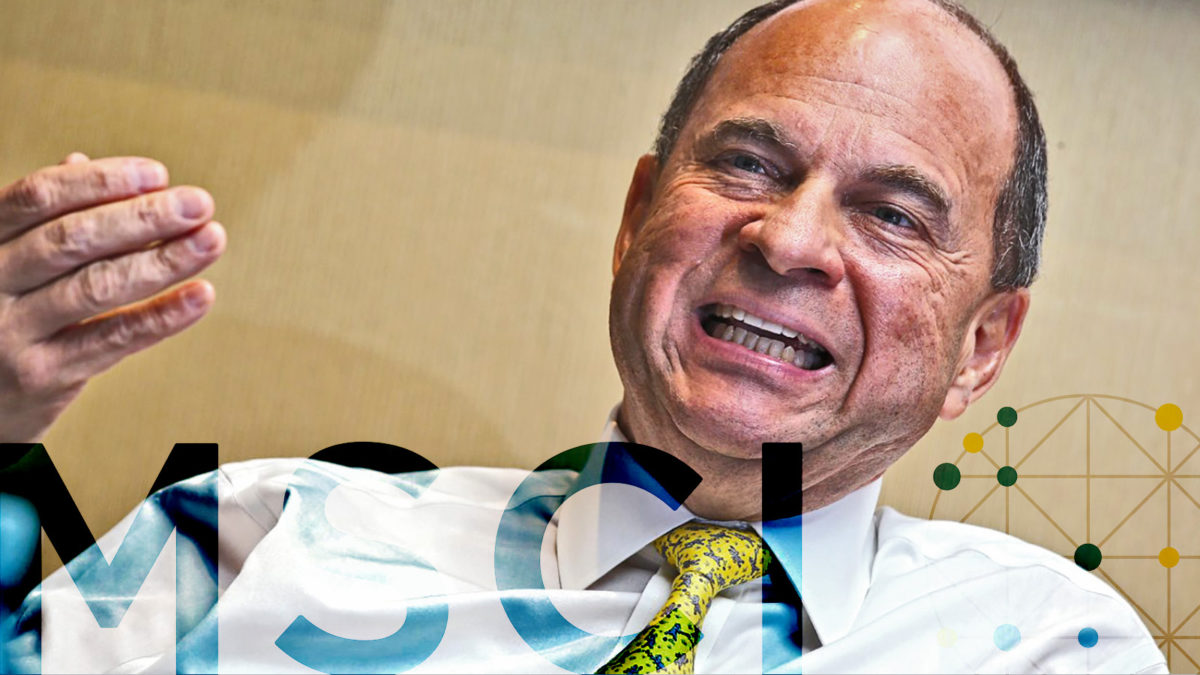If you can’t beat them, buy them
While the active versus passive debate rolls on, and on, across the investment world, some active managers have gone to the ‘dark side’, at least partially, by adding more quantitative inputs for new strategies, such as thematic investing.
The concept of ‘thematic’ investing, which describes the strategy of identifying sectors of the economy expected to grow more quickly than others and usually over the medium-long term, has become mainstream. Yet, when we think about themes, some of us tend to be attracted to the most exciting ideas like Big Data, AI or autonomous vehicles, which are themes already playing out in market prices. In reality, some of the most powerful themes can be far more pedestrian and predictable.
Consider, for instance, the exchange traded fund (ETF) sector. This burgeoning global sector started the decade at just US$1.3 trillion in assets under management, but finished close to six times higher at US$6 trillion. Incredible growth for a market sector who has historically been predominantly passive, with active and smart-beta ETFs joining the party of late.
One of the most powerful strategies used to identify investment opportunities is not only to spot the trend but also to identify the companies that offer the infrastructure on which the trend is based. As they say, behind every good idea is someone clipping the ticket. So, while many focus on the trend, some smart investors focus on the ‘clipper’. As an example, consider Amadeus IT (BME:AMS) the German group which facilitates airline, hotel and other travel bookings, across that sector.
But what about the investment sector itself? Enter MSCI Inc. (NYSE:MSCI) and its long-standing chairman, Henry A. Fernandez. MSCI (Morgan Stanley Capital International) was born in 1968 and headquartered in New York. The group was founded with a single goal to offer benchmarks or indices for capital markets outside of the US – the US obviously being the domain of Dow Jones and Co. In 1986, the group teamed up with Morgan Stanley, which became its largest shareholder and licenced the index, no doubt for an attractive fee. MSCI ultimately grew into the business it remains today, the leading ex-US index provider in the world, with a report by Burton-Taylor International Consulting suggesting a revenue market share of 25% In 2019.
It was with great skill, luck or timing, probably all three, that Morgan Stanley decided to divest and list the company on the NYSE at the absolute height of the GFC, trading for the first time in November 2007. What followed were years of doldrums, with a weak share price, poor earnings growth and any number of competitors entering the market from Eurostoxx to Standard and Poor’s and Nasdaq.
Fast forward to today and the company is a US$25 billion behemoth that has grown close to 500 per cent in less than five years. In fact, despite the incredible weakness in the equity markets in the first half of 2020, the share price is up over 40 per cent for the year to date. The theme powering this trend is the incredible flood of capital into passive, smart beta and ETF strategies. Whether the result of pension funds focusing on lowering costs, the outspoken views of Warren Buffet and the late Jack Bogle, or the simple fact that many active managers tend to underperform their benchmarks, the theme is unquestionable.
The MSCI of today is far removed from the MSCI of the past, despite its CEO having led the company for more than two decades. The business has built the ultimate ‘ticket clipping’ machine while augmenting this through the power of its data collection capabilities. The most important part of the MSCI machine is its index business unit, which represents close to 60 per cent of sales.
Put simply, the company is paid a small amount – in some cases a percentage, in others a fixed fee – for every dollar under management that is guided by their suite of indices. Take iShares, for example: The group’s popular MSCI EAFE ETF has more than US$350 million in assets under management, and tracks the MSCI EAFE index, with the ticket clipped. And iShares Japan, ticket clipped. In most markets outside of the US, including Australia which has had a late-blooming but rapidly growing ETF market, MSCI is a proven leader. Importantly, this revenue is recurring and regular, allowing the company to explore new and more exciting opportunities.
New opportunities include developing the company’s analytical, risk management and data collection services. Tracking stock, bond and other market indices across the world requires an incredible amount of computing power which can handle a lot of unique transaction and trading data. MSCI is leveraging this capability through its ‘portfolio analytics’ unit, which counts the world’s largest pension funds, hedge funds and other major investors as its most reliable clients.
Despite facing a headwind from falling markets in the first quarter, MSCI surprised with an outstanding performance in its data business, but specifically the ESG products. Management reported robust demand for the ESG ratings and climate change screening products, delivering annual equivalent growth of 28 per cent in the June quarter alone. The increasing contribution from the sector pleased asset owners and managers around the world who are being forced to offer members and clients greater transparency into the impact their investments are having on the environment. With data comes power.
Ultimately, the result was strong sales growth of 8.7 per cent despite cancellations coming from the struggling hedge-fund sector. Organic revenue growth remains key for index providers, with greater assets under management ensuring margins remain strong at over 50 per cent. Subscriptions grew 10 per cent in the quarter.
But, with great power comes great responsibility. One of the more interesting results of the passive and semi-passive trend is the incredible power that is being placed in the hands of index operators and data providers. Consider, for instance Tesla Inc. (NASDAQ:TSLA), which fell more than 20 per cent in a single session after Standard and Poor’s decided against its addition to the S&P 500.
Some would suggest MSCI holds even greater power due to the growing importance of the developing markets and its important role in their growth. For instance, MSCI’s recent decision to relax the restrictions on China A-Shares for its emerging markets index forced passive investors to do the same, sending the market higher.
This once again explains the core value of the MSCI business. The trend to low-cost, passive investing, boosted in Australia, for instance by regulatory moves such as the introduction of MySuper for big funds, is forcing a game of ‘follow the leader’ as managers can’t afford to underperform their benchmarks for very long at the risk of losing their jobs. While many have suggested the approach is ‘counterintuitive’ the smart ones have been backing MSCI anyway.











